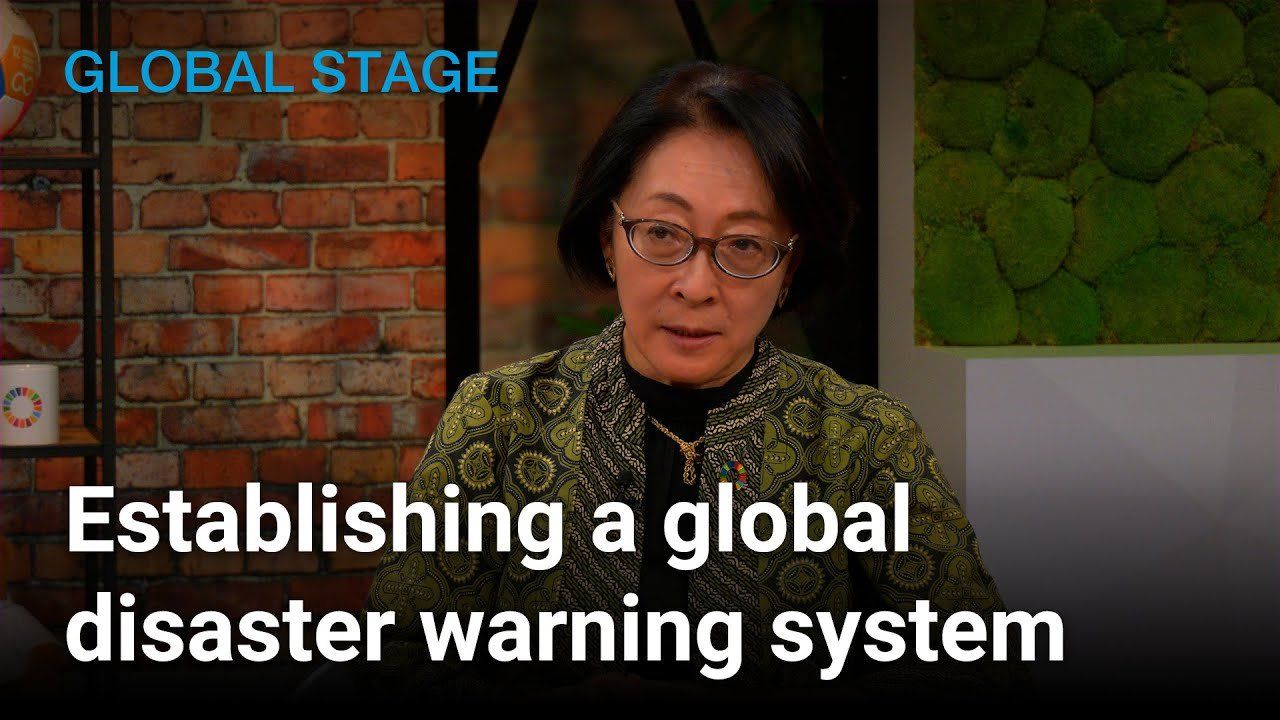
Imagine a world in which all climate catastrophe's are preceded with an early warning system. That is exactly what the UN's "Early Warnings for All" initiative intends to provide for the world by 2027.
"If you have a 24-hour before-the-disaster warning, you can save up to 30% of economic loss, and more importantly, mortality is eight times less," says Mami Mizutori who works on the Disaster Risk Reduction team at the United Nations.
Mizutori highlights how 30 countries have already joined the initiative and there was wide support at the recent Climate Ambition Summit at UNGA78.
The discussion was moderated by Nicholas Thompson of The Atlantic and was held by GZERO Media in collaboration with the United Nations, the Complex Risk Analytics Fund, and the Early Warnings for All initiative.